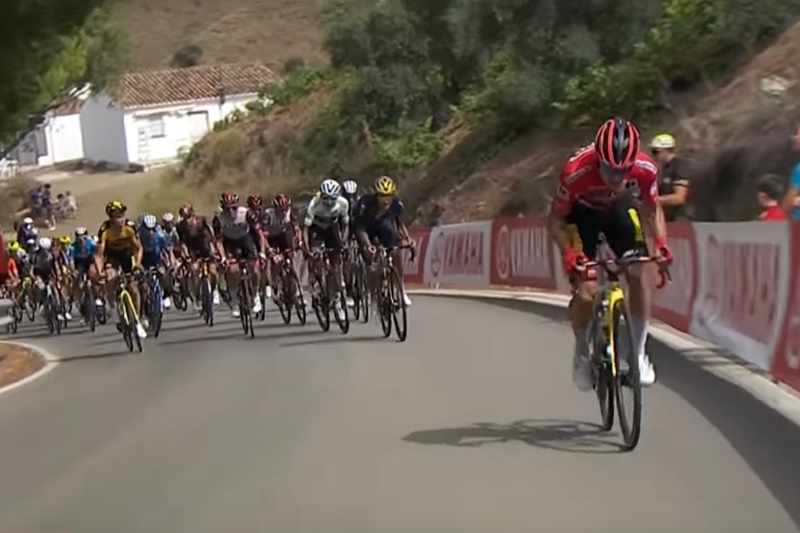
Grand Tour contenders often target the Vuelta a Espana as a second-choice after primarily aiming for the Giro d’Italia or Tour de France earlier in the year. A weird by-product of this is that it can often end up with the strongest field of the year – almost a ‘best of the Giro and Tour’ kind of thing.
That’s not really happened this year with Jonas Vingegaard and Tadej Pogacar sitting the race out. That means it’s far more of a Giro replay, only with a questionably fit Primoz Roglic also thrown into the mix.
Primoz Roglic

Roglic has won the last three Vueltas and would be out-and-out favourite if he hadn’t decked it into a hay bale at the Tour de France, dislocating his shoulder and knackering his back. He raced a good few stages with his injuries. “If you imagine like every pedal stroke seated is having a knife in the back,” he said at one point.
He eventually pulled out ahead of Stage 15 and hasn’t raced since. He only started training again last week, which is when you’d normally be tapering off your workload with a three-week race looming. His team clearly think he’s still in good nick though as he’s designated team leader. Team-mate Sepp Kuss – who can climb with the best of them, although not necessarily day after day – will try and step up if that proves a bad decision.
Jai Hindley
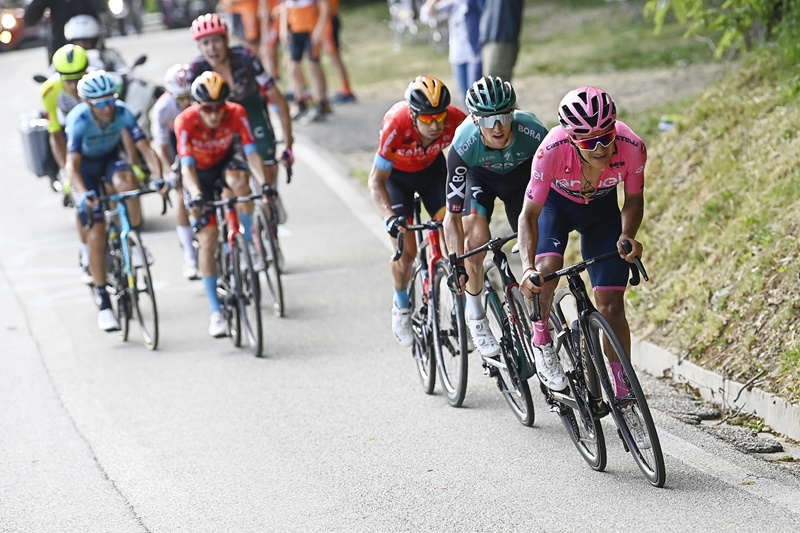
Australian rider Jai Hindley has already won one Grand Tour this year, the Giro d’Italia. Why not go for another one?
Hindley was of course responsible for one of the most exciting periods of racing in the last few years when he spent somewhere around 45 minutes trying to put a jacket on in the 2020 Giro.
Richard Carapaz
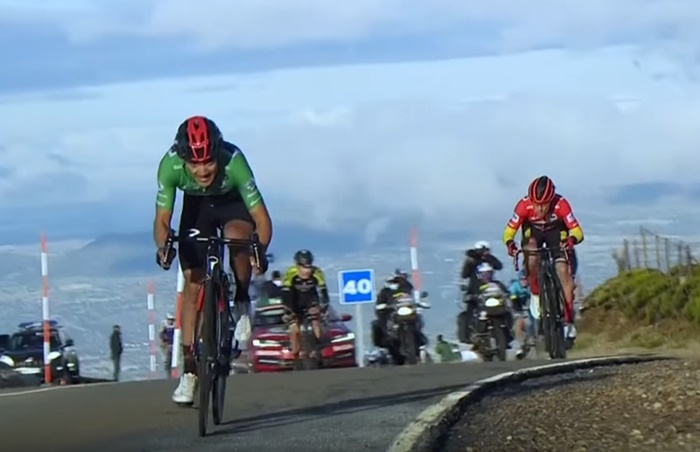
The Ecuadorian is a fiendishly committed racer but has been a bit podiummy since winning the Giro in 2019. He was second in the 2020 Vuelta, third in the 2021 Tour and then second in the Giro to Hindley.
This will be his last Grand Tour for Ineos Grenadiers before leaving the team. He’ll have 2020 Giro winner Tao Geoghegan Hart as support/Plan B.
Mikel Landa
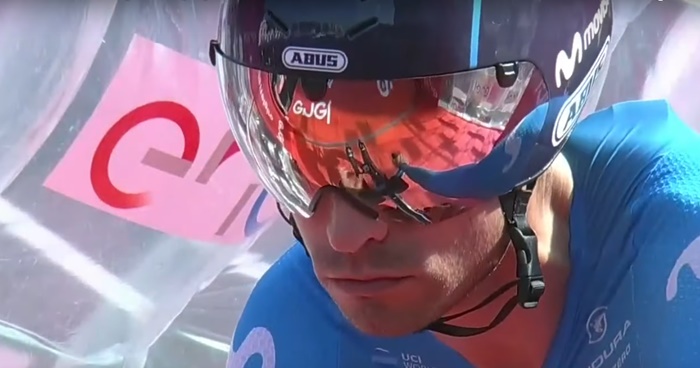
Does not win. Will not win. The Basque rider’s Grand Tour record is a great long list of thirds, fourths, sixths and sevenths.
The Yates
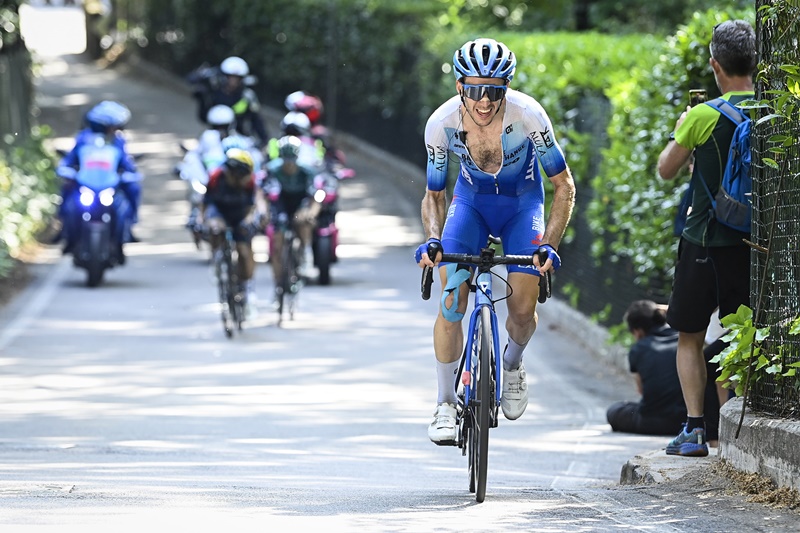
There’s always a Yates – although these days it seems you only ever get one and never both. This time around our Yates is Simon Yates, who won this race in 2018.
He’s actually one of a whole slew of former winners. In addition to himself and Roglic, who I’ve already mentioned, there’ll also be Alejandro Valverde (2009), Chris Froome (2011 and 2017) and the next two lads.
Vincenzo Nibali
The 2010 winner’s career is officially coming to a close, but he’s probably a better bet than Valverde or Froome having managed fourth at the Giro earlier this year.
Nairo Quintana
The 2016 winner finished sixth at the Tour, which was his best race result in the last few years.
Hugh Carthy
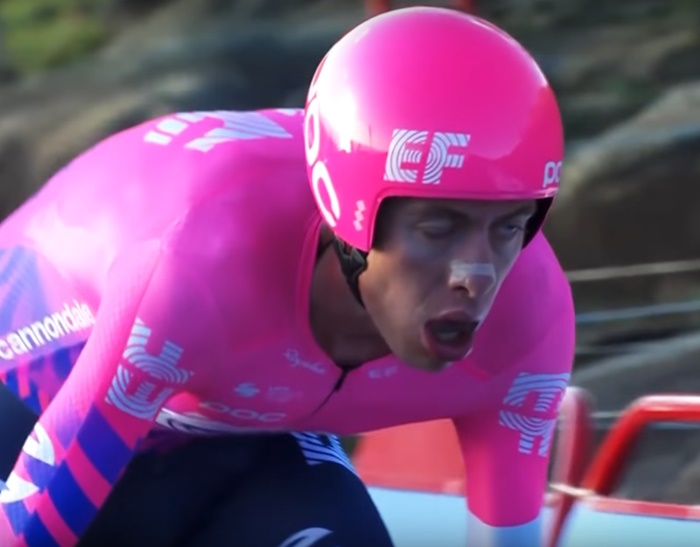
The Lancastrian finished third in the 2020 Vuelta and has managed a couple of top 10s at the Giro since. Victory seems a big ask. He’s mostly just getting a mention because I really, really like him.
Remco Evenepoel
Evenepoel took his first truly massive win earlier this year when he won Liege-Bastogne-Liege by simply beasting everyone off his wheel with 30km to go. He’s actually only ridden one Grand Tour – last year’s Giro – and crashed out, but everyone thinks the young Belgian has the right physical attributes to contest three-week races.
Joao Almeida
The Portuguese rider is still pretty young and it wouldn’t take much of an improvement for him to find himself right in the mix.
The route
The Vuelta gets off to an uncharacteristically un-Vuelta-ish start – in large part because they’re starting in the Netherlands.
That means there’s no real threat of a hill until Stage 4, but even then the race refuses to serve up a trademark uphill/summit finish until Stage 6 on Thursday August 25. There are seven or eight from that point on though, so it’s still the same old Vuelta at heart.
Usual spiel to finish: Please sign up to get the weekly recaps by email. Please encourage someone else to do the same.
Leave a Reply